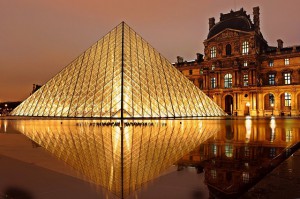French Slang Terms to Help You Speak Like a Local
To become fluent in a language, you need to move beyond textbook grammar and learn how first language speakers actually talk. An important cornerstone of this native fluency is slang. French is no different. Casual French is full of words and expressions that you won’t find in your textbook. These words give colour to the language, and the vocabulary, like any modern language, is constantly evolving.
One popular type of French slang is called le verlan, and is formed by switching the syllables in a word, such as in the word le verlan itself, which comes from l’envers. If that is too mind-bending for you, learn these other popular French slang terms, or argot, to help you get by on the streets of France.
Image via Pixabay
1. Le Blé – Money
Like English, French has many slang terms for money, formally called l’argent. One of the most popular is le blé, literally meaning wheat. If you want to change up the slang, you can also use le fric, le pognon, la thune or l’oseille.
2. Bouffer – To eat
This verb is wonderfully expressive. It means to puff up in size, but it used colloquially in place of manger, meaning to eat. It can be used in the following way: J’ai trop mangé. J’ai bouffé une tablette de chocolat – I ate too much. I ate a slab of chocolate. La bouffe is also used for food. The expression À la bouffe, for example, means come to eat (literally to the food)!
3. Le Bordel – Mess
Another word repurposed from its original meaning (brothel), bordel is commonly used to mean a mess. C’est le bordel! This is a real mess. It is also used as an expression, with a similar meaning to bloody hell. You can also say: C’est quoi ce bordel? What the hell?
4. C’est dingue ça! – That’s crazy!
Dingue means crazy and the expression c’est dingue ça can be used in similar ways to the American expression: “dang.” It’s also a way of saying: That’s incredible!
5. Clope – Cigarette
One word you should probably know if you’re heading to France, particularly if you’re planning on hitting up nightclubs or bars, is clope. If someone asks you for une clope, they’re asking for a ciggie.
6. Kieffer – To like/love
If you listen to a group of French teenagers, you’re sure to hear the verb kieffer. It means to like or love something, but is also a way of expressing a romantic interest in someone, so pay attention to the context. Je kiffe cette chanson would be I like this song, whereas Je te kiffe, would be a colloquial way to say I dig you.
7. Mec – Guy / dude
Much in the same way that dude is versatile in English, the French slang equivalent, mec, is also a handy word. It can be used casually to refer to a guy, or in certain contexts to mean an attractive guy or hunk, for example un beau mec. You’ll also hear it in a similar way to English, such as in the phrase Ça va les mecs – How’s it going, guys? Note that you wouldn’t use mec to refer to women. An approximate female equivalent is meuf.
8. Nickel – Perfect
An easy slang phrase to incorporate into your vocabulary is nickel, which means perfect, or A-OK. If someone asks you how you are, nickel is a good alternative to très bien!
9. Trop stylé – Very Cool
Another expression to keep you cool with the teenagers is trop stylé, similar to trop bien. It means cool, rad, or awesome.
10. Truc – Thing
An informal version of la chose, truc means thing. For example, if you don’t know the name for something, you can say c’est quoi ce truc? It’s like saying thingie or whatsit in English. Note that truc also means trick.
Now that you know some French slang phrases, you’re ready to hone your French language skills. Taking French lessons is the best way to improve quickly and master the language. Get started by taking a level test. Before you know it, you’ll be chatting to the locals in France with no problems!



